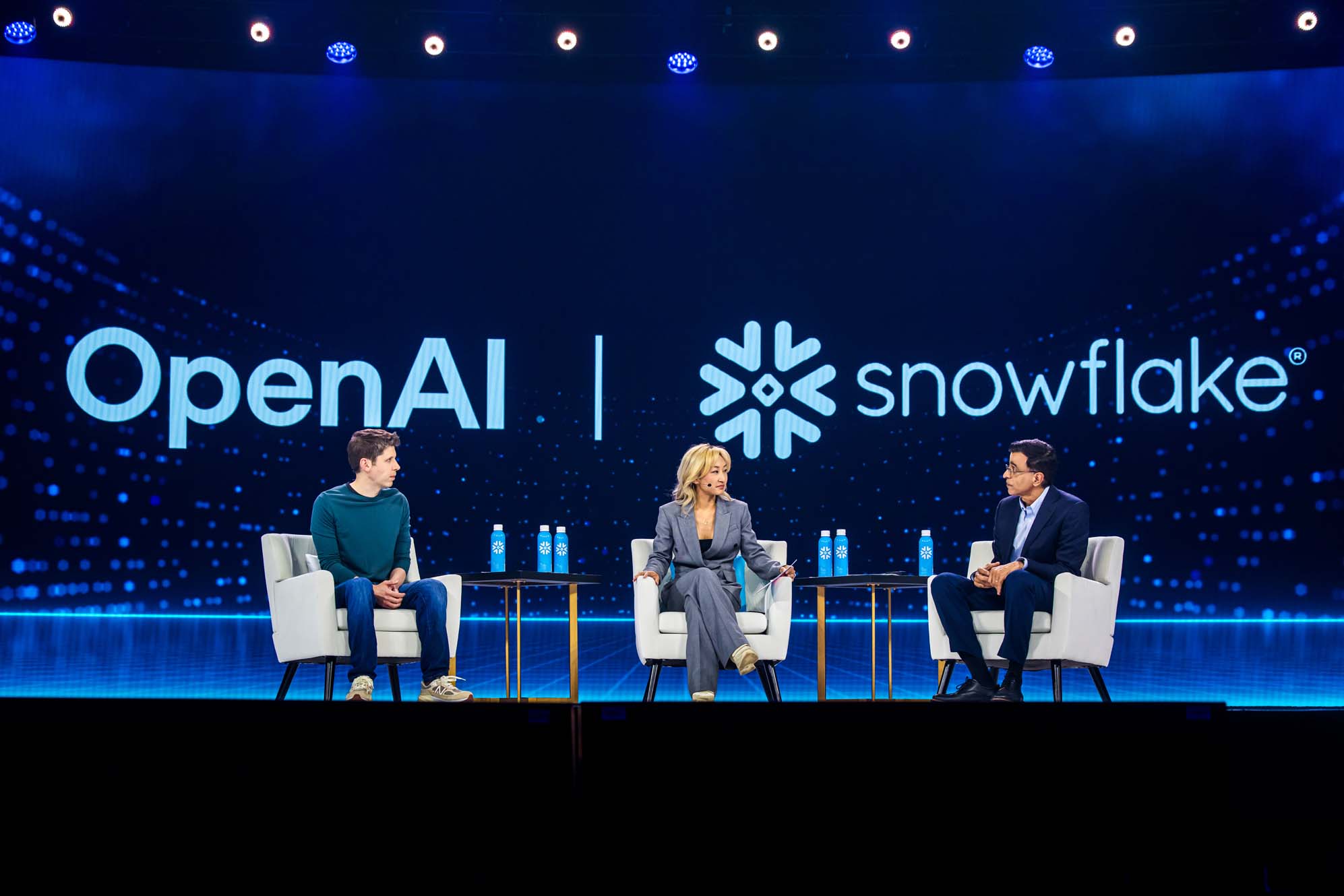"Just do it": Sam Altman says businesses looking to adopt AI should go ahead – or risk being left behind
OpenAI CEO says AI shows no sign of slowing down just yet

- Early adopters are in a much better position to win – "just do it," Sam Altman says
- Today, AI is an intern, but soon it'll be an experienced worker capable of tackling complex problems
- The next step is AGI, but does that mean accelerated scientific discoveries, self-improvement, or something else?
OpenAI CEO Sam Altman has offered his honest insights into the evolving AI landscape, comparing previous, current and future trends to point enterprises in the right direction.
"I think, just do it," Altman said in an interview with Snowflake CEO Sridhar Ramaswamy at the company's Summit 2025 event, highlighting that companies waiting for the next AI breakthrough risk being left behind.
"When things are changing quickly, the companies that have the quickest adoption speed... win," he added.
AGI definition is shifting
Reflecting on how his guidance has changed over the past year, Altman noted a major shift in AI's capabilities just in this short period of time.
"We hit a real inflection point for the use of these models," he said, but "an interesting question is what we say different next year."
Looking ahead, Altman said he envisions businesses adopting AI not just to automate routine processes but to tackle bigger challenges.
In 2026, he predicts companies will, "throw a tonne of compute" at "hugely important problem[s]" and "the models will be able to go figure out things that teams of people on their own can't do."
Sign up to the TechRadar Pro newsletter to get all the top news, opinion, features and guidance your business needs to succeed!
Altman likened today's AI to "an intern that can work for a couple of hours," but foresees a near future where AI resembles an experienced or senior worker. The OpenAI founder predicts that "in some limited cases [and] in some small ways" we could see agents capable of discovering new knowledge pretty soon, and the use cases are only set to increase with further developments.
When asked about artificial general intelligence (AGI), Altman explained that humans are very good as adjusting their expectations, challenging static definitions of the term. Casting his mind back five years, he said that most people might have considered today's ChatGPT to be AGI, but our expectations today have furthered.
"The thing that matters is the rate of progress that you see year-over-year over the last five years should continue for at least the next five, probably well beyond that," he added, suggesting we're nowhere near the top.
His preferred purpose for AGI would be to significantly increase, maybe "quadruple," scientific discovery, but he also acknowledges that others see AGI as a system capable of self-improvement, potentially even consciousness.
Concluding, Altman was asked a hypothetical question – what would he do if he had 1,000x more compute?
"I would ask it to work super hard on AI research, figure out how to build much better models, and then ask that much better model what we should do with all the compute," he said.
Offering us a glimpse into the not-too-distant future from OpenAI, Altman revealed that "the models over the next year, two years, are gonna be quite breathtaking... there's a lot of progress to come."
You might also like
- Sam Altman says how people use ChatGPT reflects their age – and college students are relying on it to make ‘life decisions’
- We've listed the best AI tools and best AI writers available today
- Access powerful chips with the best cloud computing services
With several years’ experience freelancing in tech and automotive circles, Craig’s specific interests lie in technology that is designed to better our lives, including AI and ML, productivity aids, and smart fitness. He is also passionate about cars and the decarbonisation of personal transportation. As an avid bargain-hunter, you can be sure that any deal Craig finds is top value!
You must confirm your public display name before commenting
Please logout and then login again, you will then be prompted to enter your display name.
